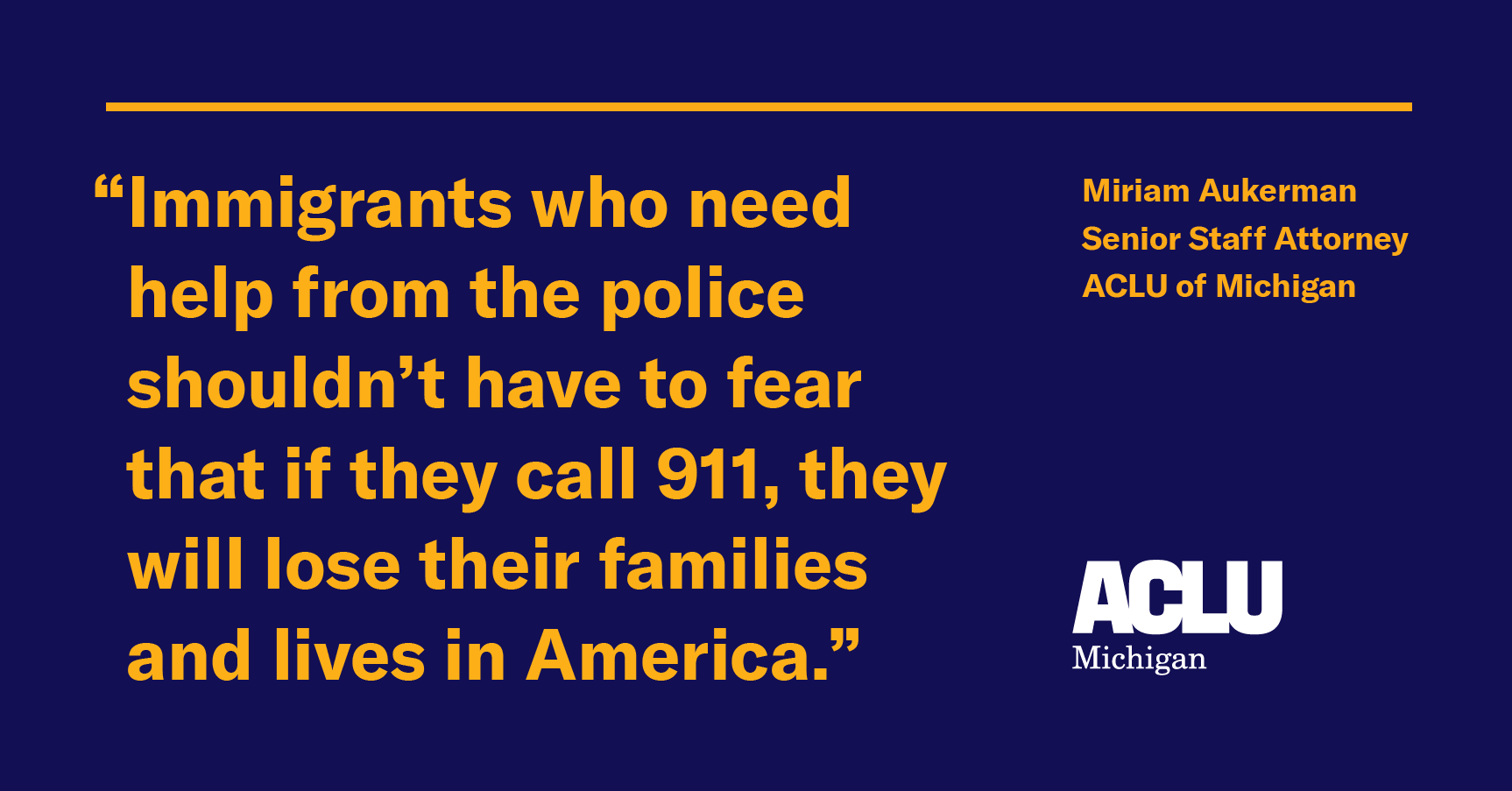DETROIT – The American Civil Liberties Union of Michigan (ACLU) applauds the Grand Rapids Police Department’s (GRPD) foreign nationals policy announced today. The policy comes after the ACLU and community partners have long been advocating for a policy to limit entanglement between the GRPD and U.S. Immigration Customs Enforcement (ICE).
“This new policy recognizes that the police are here to serve everyone in the community,” said Miriam Aukerman, ACLU of Michigan senior staff attorney. “Immigrants who need help from the police shouldn’t have to fear that if they call 911, they will lose their families and lives in America. This policy recognizes that when local police get involved in immigration enforcement, it undermines community trust, leads to racial profiling, and makes everyone less safe.”
This GRPD policy announced today is adopted after ICE jailed U.S. citizen and Marine Corps veteran Jilmar Ramos-Gomez based on a tip from GRPD Captain Curt VanderKooi. Captain VanderKooi asked ICE to check the “status” of Mr. Ramos-Gomez, who is Latinx, even though he was arrested while in possession of his U.S. passport and Marine Corps tags. Mr. Ramos-Gomez spent three days in ICE detention before his family’s lawyer was able to prove that he was a U.S. citizen and secure his release. The City’s Civilian Appeal Board later found that that Captain VanderKooi had discriminated against Mr. Ramos-Gomez.
Under the new policy, people cannot be stopped, questioned, arrested, searched, or detained based solely on suspected violations of civil immigration law. In the case of Mr. Ramos-Gomez, for example, Captain VanderKooi would have been barred from contacting ICE simply because he thought Mr. Ramos-Gomez was not in the country legally.
“While what happened to Jilmar should never have happened,” said Aukerman, “we are glad that the GRPD is taking steps to make sure that nothing like that ever happens again.”
This policy also prohibits police from inquiring into a person’s immigration status when they are seeking police services.
“This policy will enhance public safety by encouraging victims and witnesses to come forward regardless of immigration status,” said Aukerman.
WATCH GRPD FOOTAGE OBTAINED BY THE ACLU
This GRPD video and records, obtained by the ACLU and released on April 30, show GRPD knew Mr. Ramos-Gomez was a U.S. citizen before turning him over to ICE
Date
Friday, August 23, 2019 - 3:00pmFeatured image

